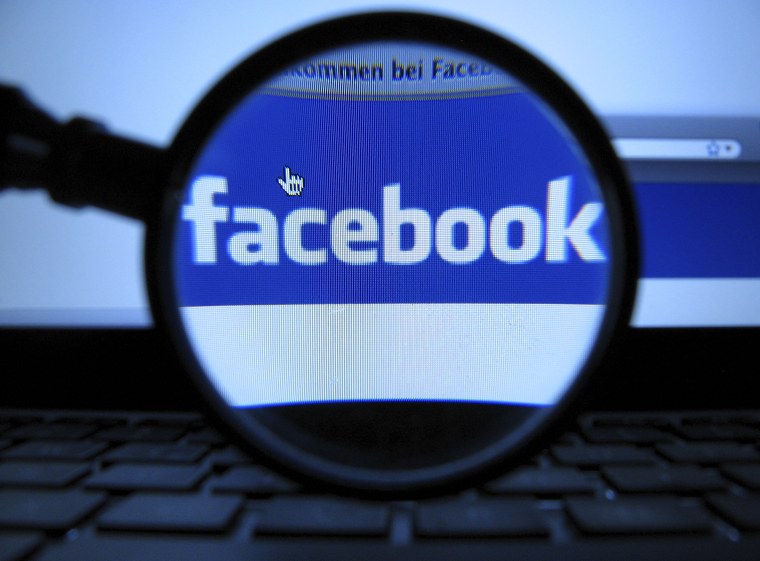ThinkProgress' Ian Millhiser wrote a compelling piece over the weekend, making the argument that Judge Brett Kavanaugh, if confirmed to the Supreme Court, would vote to reverse Roe v. Wade. As he always does, Millhiser fleshed out his position with quite a bit of evidence and links to relevant support materials, bolstering his speculative point about Kavanaugh's likely intentions.
But if you saw the opinion piece on Facebook, you were confronted with an unexpected warning: the Weekly Standard, a conservative magazine, labeled Millhiser's piece "false." The social media giant effectively urged its users who saw the article to consider it "factually inaccurate."
If this were simply a routine dispute between two political outlets -- one on the left, the other on the right -- it wouldn't be the least bit notable. Practically every day, the Weekly Standard and outlets like it take issue with progressive arguments, just as ThinkProgress and outlets like it take issue with conservative arguments. I found Millhiser's piece persuasive; the Weekly Standard didn't; news consumers are welcome to read the evidence and reach their own conclusions.
But it's Facebook's role that changes the nature of the game. Slate's Mark Joseph Stern had a good piece yesterday explaining the broader dynamic:
In the wake of the 2016 election, to combat the rampant dissemination of disinformation, Facebook brought on five third-party fact-checkers to referee stories posted to the website. If any one fact-checker contests the accuracy of a story, it is flagged by Facebook as potential "false news," and this "false rating" has a dire chilling effect on readership. This system thus gives a handful of outlets immense power over the articles that show up in your news feed.Four of Facebook's chosen fact-checkers -- the Associated Press, Factcheck.org, PolitiFact, and Snopes -- are widely trusted and nonpartisan. The fifth, the Weekly Standard, has generally high-quality editorial content with a conservative ideological bent.
The phrase "one of these things is not like the other" comes to mind. The Associated Press, of course, is one of the world's largest independent news organizations. Factcheck.org, PolitiFact, and Snopes are arguably the three highest-profile fact-checking websites online, and none of them have a reputation for being especially partisan or ideological.
The Weekly Standard, however, is a conservative magazine, featuring conservative editors and conservative content. For Facebook to give it fact-checking authority is, to put it charitably, curious.
My point is not to cast aspersions on the magazine. The fact that the Weekly Standard repeatedly told the nation, for example, that Saddam Hussein had weapons of mass destruction in Iraq isn't really the point.
Rather, the question is why the world's largest social-media platform has given extraordinary editorial authority to this conservative outlet -- a power that no progressive outlet has been awarded.
If the Weekly Standard published a piece refuting Millhiser's argument, that's obviously fine. But on a debatable point, why should the magazine be able to tell Facebook users that Millhiser's case is "false," when in fact, his piece had real merit?
If Facebook is concerned about people using its platform to spread bogus reports, I'm glad. If the social-media giant is serious about fact-checking and combating misinformation, that's a worthy goal.
But this incident clearly suggests Facebook's current model is in need of an overhaul.
Mark Joseph Stern's Slate piece added, "The Weekly Standard may disagree with [ThinkProgress'] headline, but it is simply wrong to call it 'a verifiable lie' when it rests on a nuanced and subjective legal argument. It's also galling that Facebook has refused to adjudicate this dispute, instead telling ThinkProgress that 'Facebook defers to each independent fact-checker's process and publishers are responsible for reaching out to the fact-checkers directly to request a correction.' By deferring to the Weekly Standard's judgment, Facebook is picking sides in an ideological debate. That's not just appeasement of conservatives, it's complete surrender."
